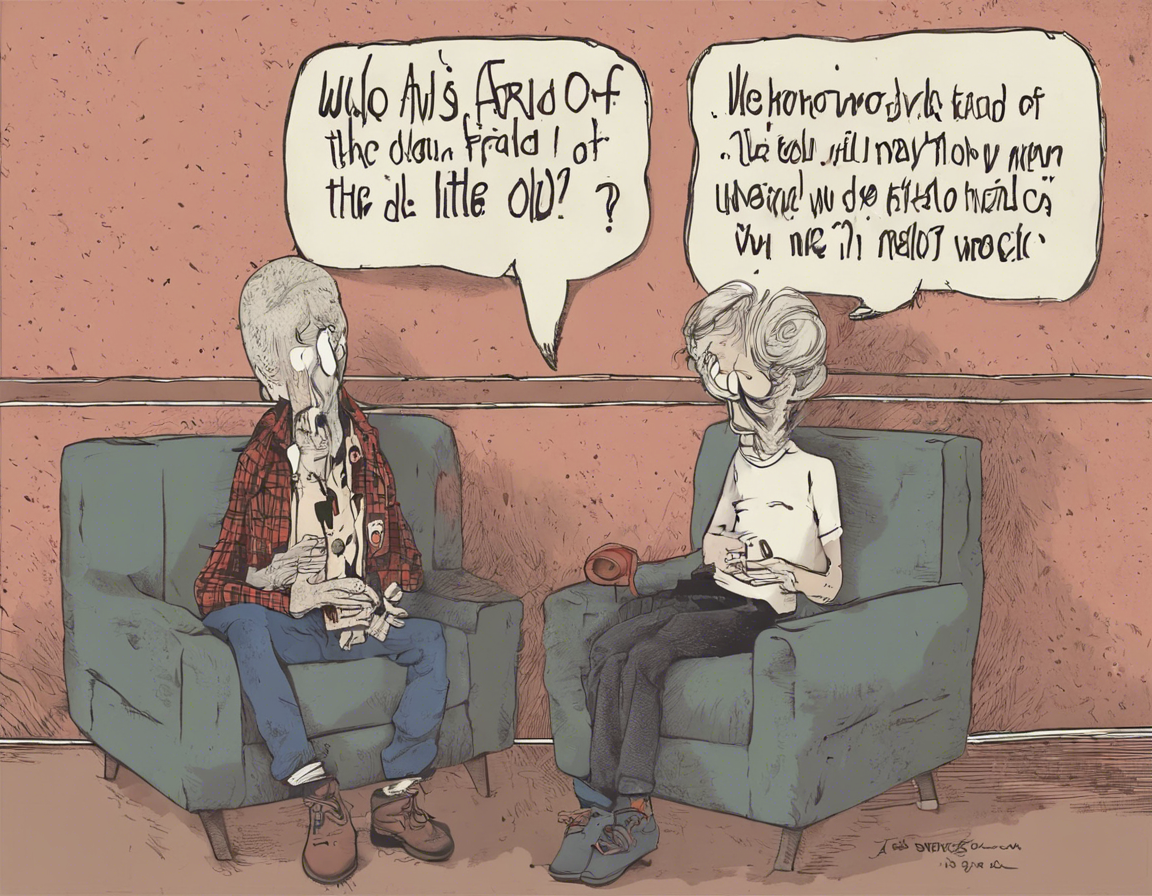Introduction
Analyzing lyrics in music can often lead to a deeper understanding of the emotions and messages behind a song. One song that has captivated audiences with its enigmatic lyrics is “Who’s Afraid of Little Old Me.” In this blog post, we will take a closer look at the lyrics of this song, exploring its themes, interpretations, and the impact it has had on listeners.
Understanding the Lyrics
Who’s Afraid of Little Old Me is a haunting and evocative song that delves into themes of fear, power, and introspection. The lyrics paint a picture of a protagonist who is grappling with their own inner demons and the fear they instill in others. The opening lines, “In the dead of the night, I come calling, my face is a mask” set the tone for the song, hinting at a sense of mystery and darkness.
As the song progresses, the protagonist’s words become more confrontational, with lines like “I am the shadow on the wall, the whispers in the hall” emphasizing their intimidating presence. The repetition of the chorus, “Who’s afraid of little old me?”, serves as a stark reminder of the protagonist’s desire to be recognized and feared.
Themes and Interpretations
The lyrics of Who’s Afraid of Little Old Me can be interpreted in various ways, depending on the listener’s perspective. One possible interpretation is that the protagonist is struggling with their own insecurities and fears, projecting a tough exterior to mask their vulnerability. The repeated question, “Who’s afraid of little old me?”, could be seen as a plea for validation and recognition, a way for the protagonist to assert their power and presence in the world.
Another interpretation is that the song explores the idea of power dynamics and the ways in which individuals assert control over others. The protagonist’s menacing words and imagery suggest a desire for dominance and respect, even if it comes at the cost of instilling fear in those around them.
Impact on Listeners
The lyrics of Who’s Afraid of Little Old Me have resonated with many listeners, sparking discussions and debates about the deeper meanings behind the song. Some have found solace in the protagonist’s struggles with self-identity and power, relating to the themes of insecurity and the desire for recognition.
Others have been intrigued by the darker undertones of the lyrics, appreciating the song’s ability to evoke emotions of fear and unease. The haunting melody and poetic language have drawn audiences in, creating a sense of intrigue and mystery that keeps listeners coming back for more.
Frequently Asked Questions (FAQs)
-
What inspired the lyrics of “Who’s Afraid of Little Old Me”?
The inspiration behind the song’s lyrics is multifaceted, combining elements of personal introspection, power dynamics, and the artist’s own experiences with fear and insecurity. -
Are there any hidden messages or symbols in the lyrics?
While interpretations may vary, some fans believe that the lyrics contain hidden messages about self-empowerment, the masks we wear in society, and the complexities of human emotions. -
Who is the intended audience for the song?
The song’s lyrics are open to interpretation, making it appealing to a wide range of listeners who appreciate thoughtful and introspective music. -
What emotions are evoked by the lyrics of “Who’s Afraid of Little Old Me”?
The lyrics evoke a range of emotions, including fear, introspection, empowerment, and vulnerability, resonating with listeners on a deep emotional level. -
Has the artist shared any insights into the meaning behind the lyrics?
While the artist has not explicitly revealed the specific meaning behind the lyrics, they have hinted at the personal nature of the song and its connection to their own struggles with identity and power.
In conclusion, the lyrics of “Who’s Afraid of Little Old Me” offer a rich tapestry of themes and emotions for listeners to explore and interpret. Whether grappling with fears and insecurities or examining power dynamics and self-identity, the song’s enigmatic lyrics continue to captivate audiences and spark meaningful conversations about the complexities of the human experience.
